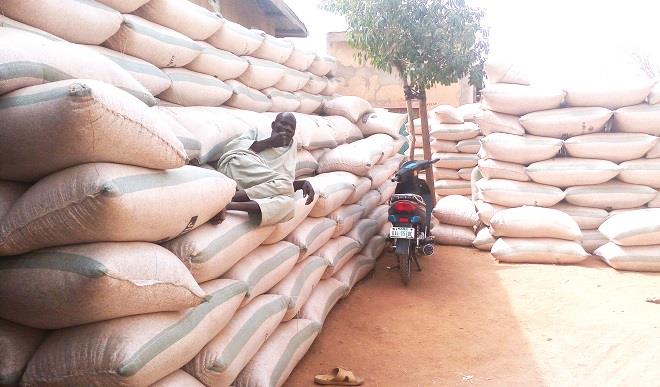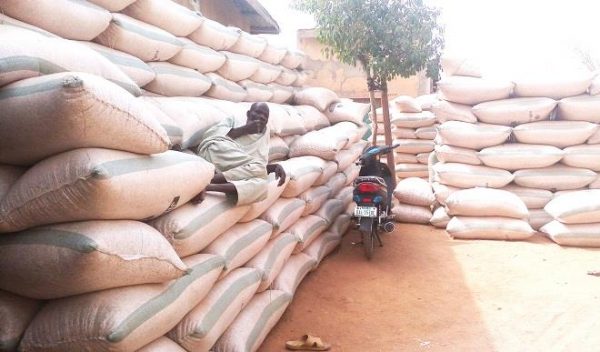Kano, Northern Nigeria’s commercial heartbeat and the country’s second biggest city, is known for its ancient trading prowess. Its importance to trans-saharan trade dates back several centuries, and has successfully held its own as a business hub linking the southern reaches of the sahel and the forest belt beyond it with the continent’s northern regions. These days, the connections extend as far as Asia (especially the Middle East) and to cities on Africa’s southernmost coastlines.
But Dawanau, a market founded in 1985, has only been around for a fraction of the time that some of the more famous trading posts of Kano State have lasted. It isn’t in the thick of the modern buzz of metropolitan Kano either. Sitting almost nine miles North-West of the city centre, Dawanau looks at first site like a typical large Northern marketplace- and there are more than just a few of them.
Nevertheless, Dawanau is famous for one thing: it’s Nigeria’s- and West Africa’s -largest grains market.
The sprawling informal complex consists of several thousand shops (about 20,000, by one trader’s estimate), and is dotted by several large storehouses. Several tonnes of seeds and grains are bought and sold at the market daily; the heavily traded ones include; sesame, soya beans, moringa seeds, cowpea, maize, millet and guinea corn. Other food items on sale there include hibiscus flower, moringa leaves, Irish potatoes, sweet potatoes, cassava, wheat and rice.
Dawanau owes its status to a web of supply and demand that spans thousands of kilometers. The grains and other items sold at the market are transported from villages in several Northern states, including Borno, Bauchi, Jigawa, Katsina, Kogi, Nasarawa, Plateau and Zamfara. Some of the traded produce gets shipped into Dawanau from as far off as Cameroun and Niger Republic. Buyers at the market come from across the country; business-people from some of the other big cities- Lagos, Ibadan, Port Harcourt, and several others -buy up stocks and move them southwards by road, to the markets in these major population centres.
There’s international patronage as well. Merchants from other African countries, such as Burkina Faso, Central African Republic, Togo and Libya are regulars at Dawanau. Exporters also use the market’s place as a collection point to buy grains which they sell to customers in countries as distant as the United States, the United Kingdom, the UAE, India and China.
For a market that came out of the ashes of a single trader’s misfortune three decades ago, Dawanau is doing exceptionally well. Alhaji Uba Ahmad, who founded the now transnational trading centre, probably didn’t envision its coming boom when his shops at the Sabon Gari market were destroyed by fire. That loss forced him to make a fresh start, one that is now contributing in no small part to keeping Kano’s wheels of commerce going.
Feature image photo credit: dailytrust.com.ng


